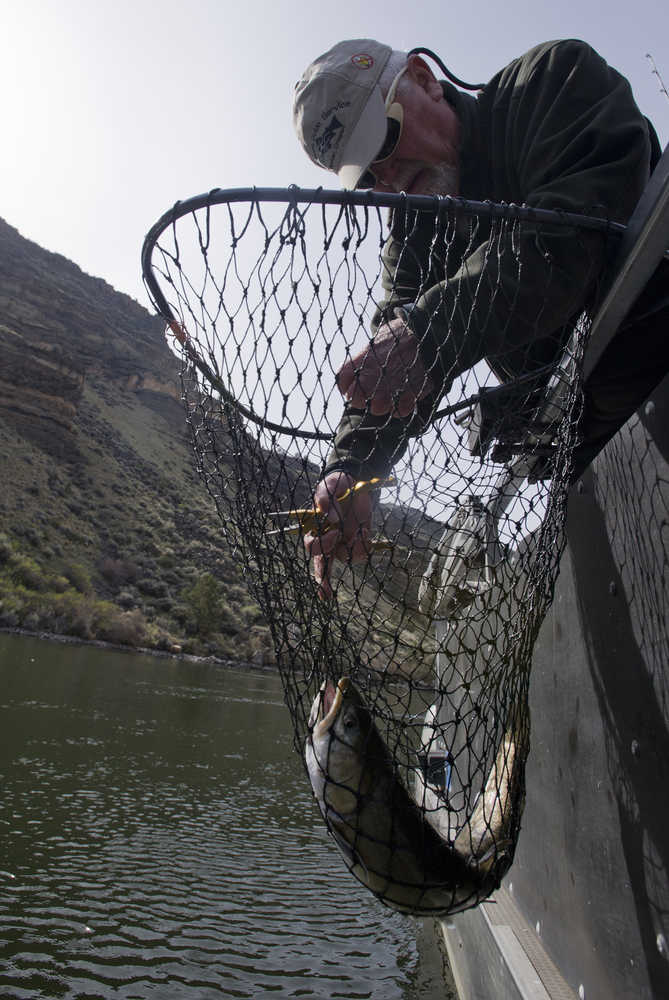BOISE, Idaho — A federal plan to bolster threatened populations of bull trout in five Western states falls short, two conservation groups said as they filed notice of their intention to sue the government.
The proposal to aid the fish’s recovery violates the Endangered Species Act, the groups Alliance for the Wild Rockies and Friends of the Wild Swan said in a notice Wednesday to Interior Secretary Sally Jewell.
“They essentially want to redefine recovery to almost extinct,” said Mike Garrity, executive director of Alliance for the Wild Rockies. “They’re lowering the bar so they can delist bull trout.”
The U.S. Fish and Wildlife Service said Thursday that it does not comment on pending litigation. The agency last month released a proposal outlining ways to boost bull trout populations in Idaho, Oregon, Washington, Montana and a tiny portion of Nevada.
The groups say the plan doesn’t set measurable goals for removing the species from the endangered list.
Bull trout prey on young salmon and salmon eggs and have declined along with that fish. The trout was listed as threatened in the Lower 48 states in 1999 and now occupy only about 60 percent of their former range.
Threats to the cold-water species include warming water caused by climate change, isolated populations, hybridization with non-native brook trout, and competition from foreign lake trout, experts say.
The recovery plan stems from the settlement of a lawsuit last year by the same two environmental groups. Federal agencies and other entities can use it to guide conservation efforts, officials said.
The plan identifies more than 100 core trout areas in six recovery units across the states and then designs specific actions for bolstering bull trout in each unit.
In the four largest recovery units, the plan calls for stable populations in at least 75 percent of the core areas before bull trout can be considered for delisting. The proposal aims for 100 percent but allows 75 percent in some units because Fish and Wildlife is confident bull trout could remain viable.
The conservation groups say that allows 25 percent of the population in some areas to be wiped out.

